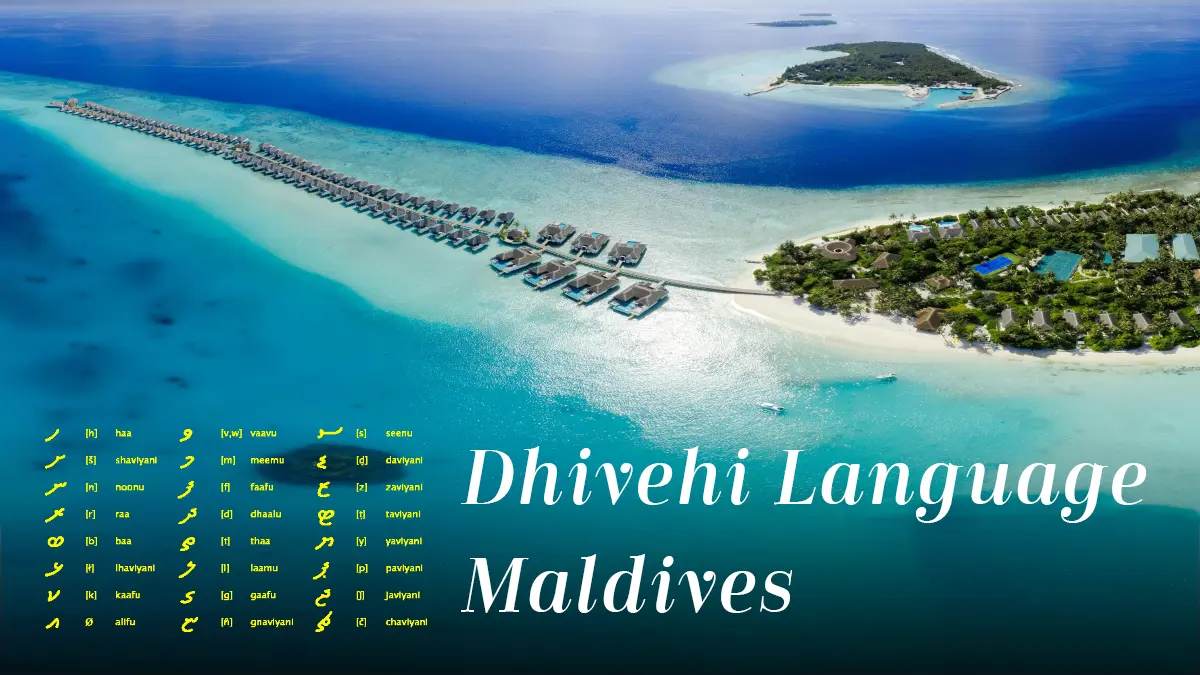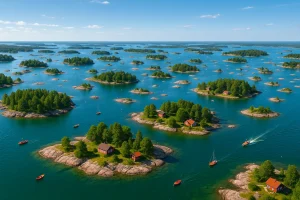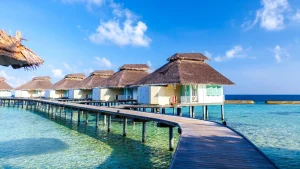The Dhivehi language is what people in the Maldives speak every day as it’s also called the Maldivian language and sounds different from English so if you’re planning trips like Maldives tour packages or Maldives honeymoon packages then learning a few Dhivehi language words can make your visit even more fun! It is spoken in the home, in the shops and in school and it helps make you part of the island culture more so let’s learn about this special language a bit more!
What Is the Dhivehi Language?
Dhivehi language is the Maldives’ official language because it’s what everyone in the islands uses day-to-day and it’s spoken in markets, on the beaches and in local homes because it’s also referred to as the Maldivian language and it’s written using its own script named Thaana which is quite different from English letters.
You will be able to hear Dhivehi language spoken by locals, signs, singings when you visit the Maldives and although all locals do speak English, it is always best to know a couple of words of Dhivehi language so that your break can be enjoyable and memorable since you are able to talk with the locals and appreciate their culture even more.
Dhivehi stands out from the rest in that it takes words from Arabic, Sanskrit and other ancient languages but it’s still a very distinct language and regardless if you’re going to a small island or a big resort, you’ll see that the English to Dhivehi language phrases prove useful and locals will appreciate it when you take the time to speak with them in their language.
Learning Dhivehi language is the best way of getting involved with the Maldives beyond the beautiful beaches and hotels because it’s an eye-opener to how people live, laugh and joke on a daily basis!
History of Dhivehi – How It Came to Be
The Dhivehi language has a long and exciting history that shows how the Maldives stayed connected with the world while keeping its own culture and here’s how it all began:
- A Very Old Language: People have been speaking Dhivehi language in the Maldives for more than 1,000 years as it’s one of the oldest languages still used today.
- Where It Started: The language came from old languages like Sanskrit and Arabic, which traders and travelers brought to the islands and over time as it became the maldivian language we know today.
- Shaped by the Islands: The Maldives is made up of many small islands as this helped Dhivehi language grow in its own unique way different from other languages.
- Thaana Script: The writing system is called Thaana as these letters look very different from English but they were created to make writing Dhivehi easier for the people.
- A Proud Heritage: Even though everyone speaks English, the islanders still enjoy and use maldivian language on a day-to-day basis and take pride in having culture and heritage.
- Learning Dhivehi: Try to put English into Dhivehi or take English to Dhivehi language classes and you will learn more about the islands, culture, and history.
- Attached to the World: Though keeping themselves near their origin, Maldives were never detached from the world. This helped Dhivehi build and exist actively generation after generation.
So, dhivehi is not just a language as it’s part of the islands, the people’s stories and how they live their lives.
Where Is Dhivehi Spoken?
The Dhivehi language is mainly spoken in the Maldives but here’s a simple look at where you’ll hear it the most:
- Everywhere in the Maldives: Dhivehi is the official language of the Maldives and from the capital city, Malé to islands people speak Dhivehi in their daily life.
- Local Islands: In case locals live in islands, everywhere – market, schools, and houses – Dhivehi is spoken. Even though the people are educated in English, they too speak Dhivehi when communicating with family and friends.
- Government and Media: The Maldivian government and media utilize Dhivehi language. It’s a component of them and it maintains their culture intact.
- Helping Visitors: When you have English and Dhivehi apps, it is simpler to talk to locals and learn greetings or simple phrases.
- Beyond the Maldives: Also spoken by others who reside in other countries since it’s their part of them, home, and culture.
In short, Dhivehi language is used by everyone in the Maldives and is part of island life as learning a few will make your enjoyment of experiencing the culture, its people, and traveling worthwhile!
What Makes Dhivehi Different from Other Languages?
Dhivehi language is such a different language and quite unlike other languages and here’s why it’s different:
- Spoken Only in the Maldives: Maldivian is spoken mostly in the Maldives and although the majority of tourists speak English, individuals willfully converse in Dhivehi.
- Special Script: The Dhivehi script is referred to as Thaana because it’s written from right to left, like Arabic but the letters and sound are quite different from other script systems.
- Mixed but Different: The dictionary has a few Arabic or foreign terms but the way the dhivehi language is built is completely different because its sentence and grammar is different.
- Helps Travelers to Talk: Dhivehi to English or English to Dhivehi language resources are utilized by million individuals for learning short sentences because it helps the travelers to talk with the natives and utilize the trip maximally.
- Part of Island Life: The maldivian language is culturally deep since it is not just a language but also a way of narration, way of living and traditions.
What makes Dhivehi language different is that it’s a window into the Maldives and learning even a few words helps visitors feel closer to the people and the beautiful islands.
The Dhivehi Script – Thaana Explained
The dhivehi language has its own special way of writing called the Thaana script as it’s one of the things that makes the maldivian language stand out from others!
- Unique Letters: Thaana looks very different from the English alphabet as the shapes are round, curved and easy to write which makes it perfect for the islands’ way of life.
- How It Started: People believe Thaana was created hundreds of years ago as it helped the Maldives write down their language clearly and quickly especially when reading from right to left.
- Different from Others: While English uses A, B, C and many other languages have their own letters, Thaana stands out because it uses symbols based on Arabic numbers and sounds.
- Used Every Day: Even though many people know English, Thaana is still used in schools, newspapers and shops as locals love it because it connects them to their past.
- Learning Thaana: If you learn how to read Dhivehi language, you’ll start with Thaana as it’s fun to learn because every letter has a story and sound connected to the islands’ culture.
- Why It Matters: Thaana isn’t just a writing style but it’s part of the identity of the Maldives as it helps people stay connected with their roots while the islands stay connected with the world.
Thaana is a beautiful and important part of the Dhivehi language which shows how the Maldives kept its traditions alive while welcoming new ideas and learning it opens the door to understanding the heart of the islands!
Common Dhivehi Words You Can Learn Before Visiting
It adds to your holiday all the more if you pick up some basic Dhivehi language words before you go and helps you co-exist with the people and shows that you respect their culture and even if you speak a little bit, it is a wonderful way to form a connection as you explore the islands.
Some of the typical maldivian greetings and manners that you may attempt are:
| Dhivehi Word | Meaning | How It Helps |
| Salaam | Hello | Greet people when you meet them |
| Shukuriyaa | Thank you | Show appreciation politely |
| Maafai | Sorry | Use it if you bump into someone |
| Hithaa | Good | Compliment something |
| Noonu | Salt | Helpful when shopping for food |
| Fenboah | Water bottle | Ask for water easily |
| Bodu | Big | Describe sizes or portions |
| Miadhu | Sweet | Ask about desserts |
| Kihineiy? | How are you? | Start a friendly chat |
| Boakun? | Where? | Ask for directions |
- Easy to Remember: Most of these words are short and simple so you can quickly pick them up before your trip.
- Connect with Locals: Using these words when you speak shows respect and makes people smile as it makes exploring the islands even more enjoyable.
- Learn More: Starting with these simple words helps you pick up the language of Dhivehi quicker and most guides and locals will be happy to teach you more!=
By learning a few phrases from the maldivian language, you’ll feel more confident when visiting and enjoy your time even more as it’s a small step that brings big smiles and memorable experiences!
Conclusion – Why Learning Dhivehi Language Makes Your Trip Special
Picking up on some of the Dhivehi words will enrich your Maldives experience and make it that much more enjoyable and memorable as even simple things such as “Hello” or “Thank you” are respectful of the culture and learning a couple of Dhivehi language words places you among the people, sensitive to their customs and gaining entry to the actual things and not the usual tourist fare.
While you reserve Maldives tour packages or Maldives honeymoon packages, picking up a few Dhivehi words provides a rush and makes a holiday routine become a memorable adventure that makes your Maldives holiday extraordinary and memorable.





